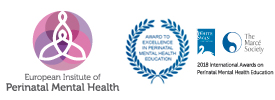 A study published in the latest edition of Archives of Women’s Health has found that instrumental births (those requiring forceps, vacuum extraction, etc.) and cesarean sections are related to a higher number of psychological difficulties after birth – ranging from lack of adjustment to motherhood to post-traumatic stress disorder.
A study published in the latest edition of Archives of Women’s Health has found that instrumental births (those requiring forceps, vacuum extraction, etc.) and cesarean sections are related to a higher number of psychological difficulties after birth – ranging from lack of adjustment to motherhood to post-traumatic stress disorder.
To put these conclusions into perspective, we must ask in how many of these cases the way women were treated played a role and was taken into account. We would also need to ask in how many cases the obstetrical interventions were medically necessary, if they were the consequence of previous unnecessary interventions and could have been avoided.
As the World Health Organization claims in its latest birth guide, women today receive highly variable interventions during childbirth. One the one hand, there are those who receive too many medical intervention too early, and on the other end of the spectrum there are those who receive hardly any or no medical support whatsoever. In neither of those extremes do women achieve the positive birth experience they desire and deserve.
Giving birth is a vital, transformative experience, usually in a context of psychological vulnerability for the mother. As time goes by, obstetrics are becoming increasingly aware of the importance of mental wellbeing, learning that the birthing process has the potential to impact posterior psychological status positively or negatively.
Empirical analysis of the relationship between type of birth and postpartum wellbeing is still limited. This study analyzed 685 women in their third month postpartum. Information was gathered on how they gave birth, and on their pre- and postnatal mental health. Analysis revealed that women who had a cesarean section or a vaginal instrumental delivery had higher scores in somatic, obsessive-compulsive, depressive and anxious symptoms, and less overall wellbeing, than those who had delivered vaginally without interventions. Other factors taken into account in the study were premorbid mental health, age, educational level, primiparous, and medical complications of the newborns.
Complete article:
Delivery mode is associated with maternal mental health following childbirth







